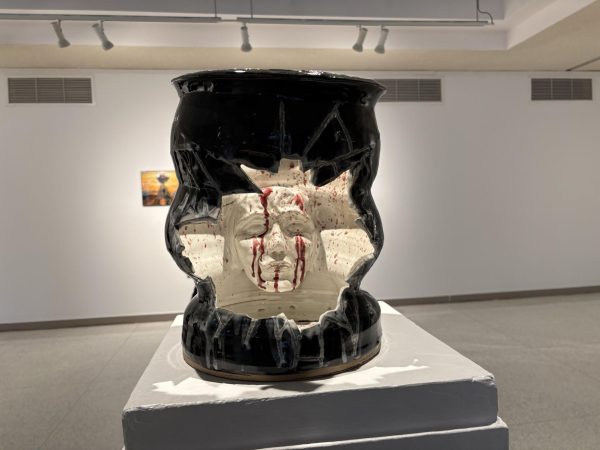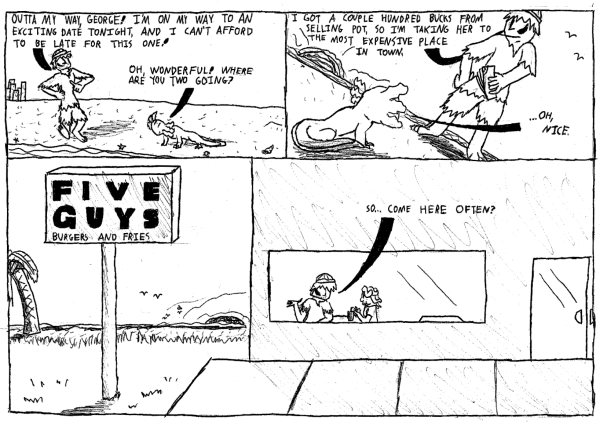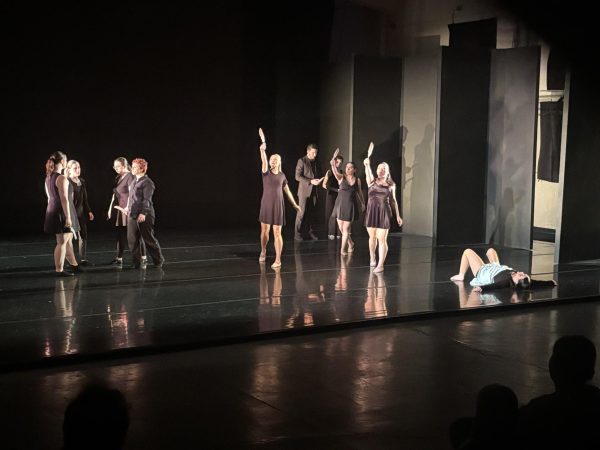Bonnie & Clyde – A Classic Love Story
Finding myself locked in my humble box for the Corona-education has left me with an unhealthy amount of boredom in simply focusing on my studies and other responsibilities. So I decided, what better course of action then to dive into the cryptic world of classic movies to alleviate this troubling boredom? I figured: what better place to start than the classic story of Bonnie and Clyde?
Arthur Penn’s 1967 “Bonnie and Clyde,” played by Warren Beatty as Claude Barrow, and Faye Dunaway as Bonnie Parker, recounts this classic American rendition of a Romeo and Juliet tale. These two bank robbers ran amuck in the American Midwest primarily robbing small convenience stores and gas stations despite their infamous bank robber title. During the film, Bonnie approaches Clyde after catching him attempting to steal her family’s vehicle in the side yard. After, Clyde explains he has just been freed from being imprisoned for armed robbery. This catches Bonnie’s attention and she asks him “What’s it like?”, to which Clyde replies, “It (ain’t) like anything.” Bonnie then follows up with “Shoot, I knew you didn’t commit no armed robbery!” Clyde produces a Smith & Wesson Model 10 revolver from his jacket pocket, to which Bonnie begins touching the barrel out of curiosity and says, “I bet you don’t have the gumption to use it.”
This is where the story begins. When Clyde robs a small store owner and flees outside with a hand full of cash, the store owner approaches him — and Clyde fires a warning shot at him, making him retreat back to his store. The couple flee to a vehicle and take off, signifying the beginning of their armed robbery crime spree.
Now fugitives from justice, Bonnie and Clyde travel to a diner and steal another vehicle after their meal. After settling into an abandoned farmhouse, Clyde tries to teach Bonnie how to use a firearm in a very intimate scene. Bonnie is a natural, hitting the target on the first try. All of the sudden, the rightful owner of the farm appears. Clyde immediately draws down on him, but in response the farmer explains this used to be his home before the “bank took it.”
The concept of an anti-hero implies that an individual is repugnant in almost every capacity. Bonnie and Clyde rob, murder and cause general mayhem in nearly every single way — but you can see that Clyde feels bad for this now homeless farmer. This is Bonnie and Clydes glimmer of humanity, which is essential for the anti-hero persona. This point is illustrated as Clyde goes so far as to hand him a loaded revolver, despite drawing down on him not even three minutes prior over such a short exchange — so that he can fire into his dearly departed homestead. Anyone familiar with the story of Bonnie and Clyde should know this story took place during a time of unparalleled economic collapse and these homesteaders are just another refugee from the Great Depression of the 1920s.
After some more crime-filled shenanigans, Bonnie and Clyde pick up another member of the Barrow gang, H.W. Moss, en route to their brothers home.
Bonnie and Clyde flee to his brother, Buck Barrow’s, home — where he and Blanch Barrow, his wife, are caught in an intense gunfight with the police. While they are making their escape, Bonnie, Clyde and Buck Barrow all end up shooting police officers while Blanch flees down the road after their pet dog. Blanche is picked up while she chases her dog, and pleads to put this madness to an end. Buck shouts, “I killed a guy, Blanche. I am in this for life now too.”
Perhaps the peak moment of this movie’s action is during the bank robbery scene in which they successfully clean out a bank and hold up a police officer. My favorite part of the whole film is the recounting of the police officer who was held at gunpoint by Buck Barrow, having his sunglasses removed by Buck, who says, “Take a good look, pop. I’m Buck Barrow.” This interaction actually occurred, and it illustrates the dramatic nature of this bizarre American tale. As they make their escape through a shallow creek, a police officer on a nearby log fires a shot into Bonnie’s right shoulder in a very sudden and loud interaction. Following this injury with a predictive and understandable loud scream fairly shook me to my core during my first viewing of the film. Clyde spins around and fires at the police officer saving Bonnie and the other members of the Barrow gang once again in a very close exchange on a twoway live firing range.
Now flush with cash but still doomed fugitives in the American Midwest, they have earned a reputation for murdering police officers and are actively being hunted. After fleeing to H.W. Moss’s father’s home, his father is polite and implores them to take care of their injuries while fleeing the bank. The father soon betrays them, as they are gunned down by federal agents hiding in a nearby bush in their vehicle.
Bonnie and Clyde could not be buried together, due to Bonnie’s family absolutely forbid it. This movie is perhaps one of the first and best entries into the dynasty of American romantic drama film culture. It offers a mostly true recounting of a great American tale of lawlessness, love at first sight, and rebellion — and is an action-packed journey into one of the strangest relationships in American history. Overall Score: 7.5/10.







